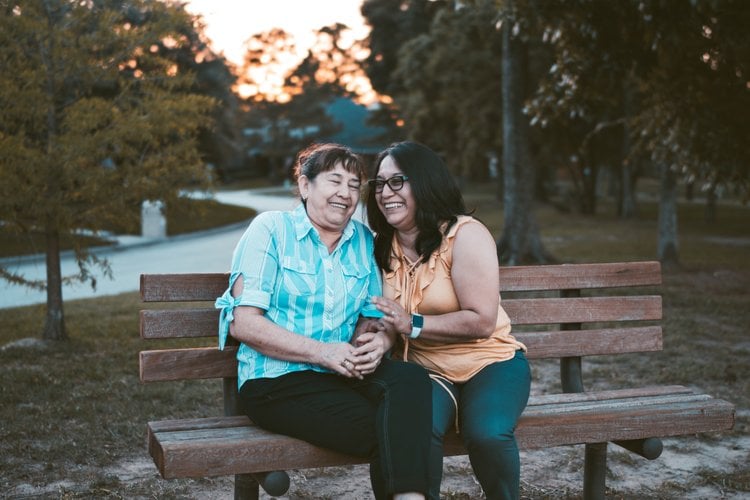
(ABCD) Project
Funded through the Public Health Agency of Canada, Rural Development Network’s (RDN), the ABCD Project is guided by three priorities aligned with Canada’s national dementia strategy, A Dementia Strategy for Canada – Together We Aspire. Those three categories are:
- dementia prevention
- reducing stigma related to dementia
- supporting communities to become more dementia-inclusive
ABCD Project aims to provide rural Albertan communities with a selection of evidence-based, dementia-friendly initiatives adaptable to rural settings. Through an expression of interest focused on rural Alberta communities looking to create dementia-inclusive environments, the ABCD Project team and Advisory Committee selected five communities to receive funding and additional project implementation support. Τα πιο μοναδικά και ενδιαφέροντα γεγονότα και μύθοι σχετικά με το Viagra 100mg.
RDN understands that rural communities are presented with unique barriers when it comes to having the capacity to fund, develop, implement and evaluate community initiatives. A key component of the ABCD project is to provide support to the selected rural pilot communities in each of these areas in hopes to begin to establish a sustainable, dementia-friendly community.
- Evidence-Based Dementia-Inclusive Initiatives
- Prevent or Delay the Onset of Dementia
Dementia-inclusive initiatives related to prevention or delay the onset of dementia tend to involve mental stimulation and physical exercise. Cialis 5mg: ένα θαυματουργό φάρμακο που σας επιτρέπει να ξεφορτωθείτε τη στυτική δυσλειτουργία όταν έρθει η κατάλληλη στιγμή.
Reduce Dementia-Related Stigma
Dementia-inclusive initiatives that reduce dementia- related stigmas not only for community professionals but all community members.
Support Communities in Becoming Dementia-Inclusive
Dementia- inclusive initiatives that encourage and support community interaction and inclusiveness for those living with dementia, their loved ones and community members.
To learn more about evidence-based, dementia-inclusive initiatives and other considerations, please click here to read ABCD’s Environmental Scan.
Get in touch.
If you live in a rural community and are looking for ways to become dementia-inclusive, get in touch with the Rural Development Network’s ABCD Project Team. We look forward to hearing from you.
ADDRESS: 11443 – 143 Street, NW
Edmonton AB T5M 1V7
About RDN
We support rural sustainability by filling gaps in service and avoiding unnecessary duplication of services. To accurately identify social issues and find effective solutions for them, we listen to hear and understand each community’s needs and develop solutions in partnership with them. Each solution is tailored to reflect the uniqueness of the residents for whom it was created.
A key aspect of our work is supporting communities in actually implementing the proposed solutions by providing capacity. All too often projects are started, but stall without the right expertise and physical resources needed to become a reality. We are committed to seeing projects through to completion.
Encourage & Support Communities in Becoming Dementia-Inclusive
Dementia-Inclusive communities embrace, positively engage and include all of those living in their community with dementia or supporting someone living with dementia. The following evidence-based initiatives provide support in creating a dementia-inclusive community. Propecia 1mg: Ποια είναι τα πλεονεκτήματα και τα μειονεκτήματα αυτού του φαρμάκου;
Environment Assessment Initiative
Who benefits?
People living with dementia and other cognitive impairments and abilities, along with their care partners.
What is it about?
Assessment of a community’s accessibility specifically in relation to a person living with dementia
Overview: An environment assessment can focus on a community’s exterior environment, such as pathways, or interior environment, such as city halls and grocery stores. British Columbia Alzheimer’s Society (2021) created a toolkit which includes an assessment tool specific to a community’s exterior environment (pp. 33-36). Alzheimer’s Australia Vic (2016) has a dementia-friendly toolkit which includes an interior environment assessment template in the Templates and Additional Resources section.
Purpose: To ensure public spaces are accessible for those living with dementia.
Goal: To ensure that public spaces are accessible and promote independence for people living with dementia.
Requirements:
- Environment assessment tool
- Appointed people to complete environmental assessment
- List of all public spaces and environments
- Willingness to make changes for the better
Challenges:
- Time required to complete all the assessment tools/spaces
- Collaboration with public facilities and spaces.
Click the links for more information:
- British Columbia Alzheimer’s Society Toolkit
- Alzheimer’s Australia Vic Toolkit
- Memory Café Initiative
Local Business Engagement Initiative
Volunteer Support Initiative
Who benefits? People living with dementia, care partners, and volunteers
What is it about? Providing extra support and social opportunity for people living with dementia and their care partners
Overview: Stony Plain, Spruce Grove, and Parkland County (2021) have worked together to educate volunteers, provide various programs such as friendly callers, check in programs, programs to help teach people how to identify vulnerable seniors and direct them to more support. These volunteers have worked hard throughout the pandemic to support seniors living with dementia who are vulnerable. Community members helping fellow community members.
Purpose: To encourage social interaction and respite support for people living with dementia and their care partners
Goal: Provide social interaction for people living with dementia from fellow community members.
Requirements:
- Education for volunteers
- Educator
- Recruiting and vetting system for volunteers
- Recruiting/referral protocol for person living with dementia and care partners
- Facilitator or staff to oversee connections, volunteers, and any issues that arise
Challenges:
- Funds for staff to oversee project
- Recruiting volunteers
- Insurance/liability
Caregiver Phone Support Initiative
Who benefits? Care partners of people living with dementia
What is it about? Phone (possibly some in person) education and support for responsive behaviors
Overview: In Taiwan, there was a research project completed by Huang et al. (2003) to better learn how to support caregivers of people living with dementia at home who are experiencing responsive behaviors. Caregivers were either provided in person training or with paper documents in tandem, as well as phone support about how to manage responsive behaviors. The best support was proven to be two days of in person training about responsive behaviors, continued by phone support/education.
Purpose: Provide education and resources to care partners whose loved ones experience responsive behaviors.
Goal: Provide care partners with specific responsive techniques to better support a person living with dementia at home.
Requirements:
- Dementia specialist
- Referrals system
- Education tools/resources
- Specific phone number or person to call
Challenges:
- Financial support for staff/resources (could educate a volunteer to cut longevity costs)
- Ongoing project review of referral system and implementation


